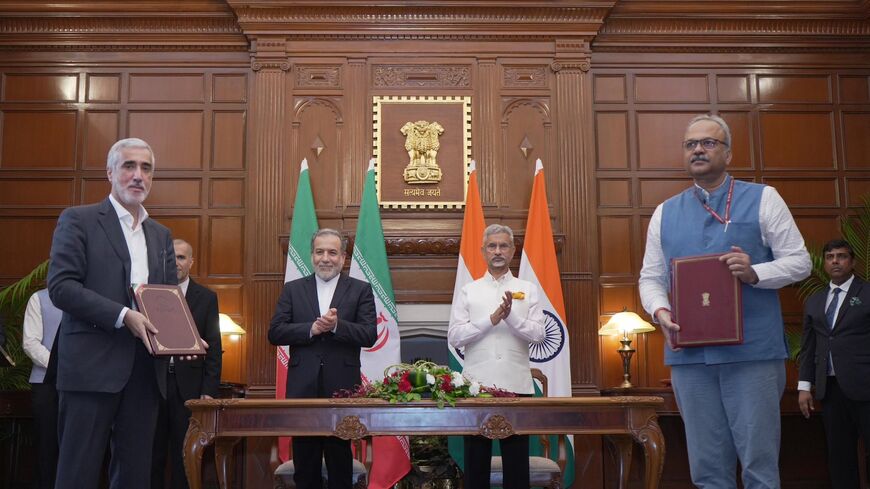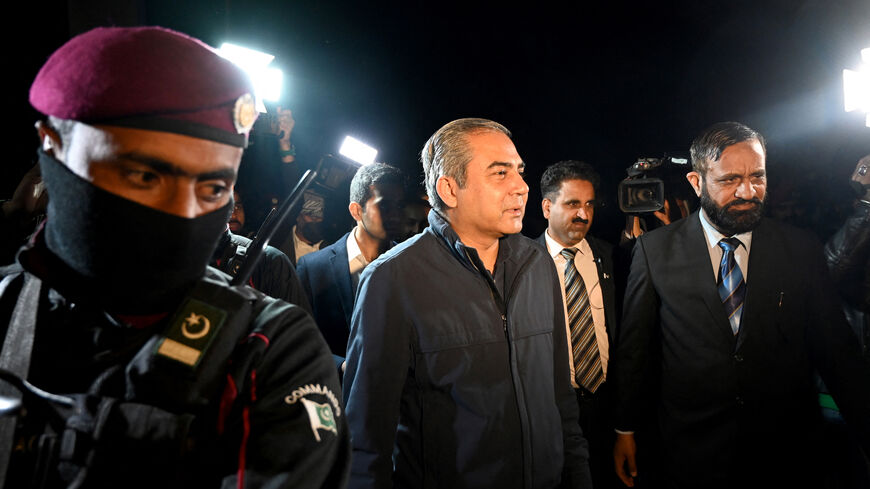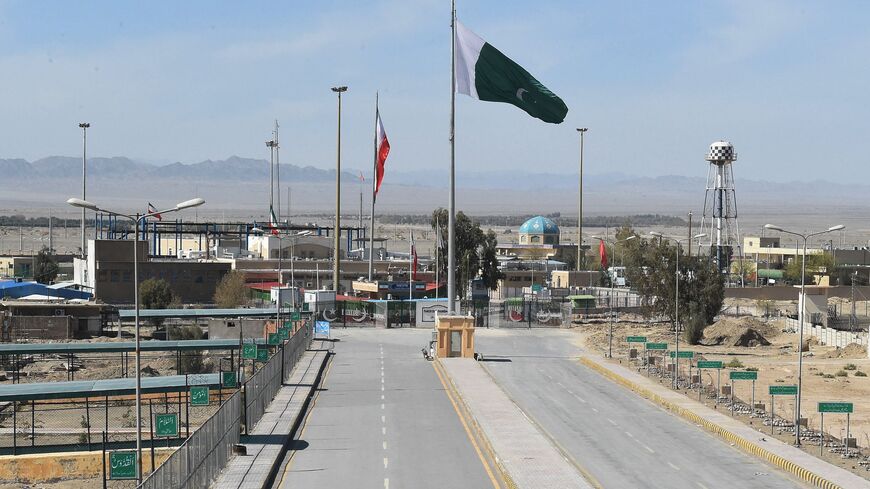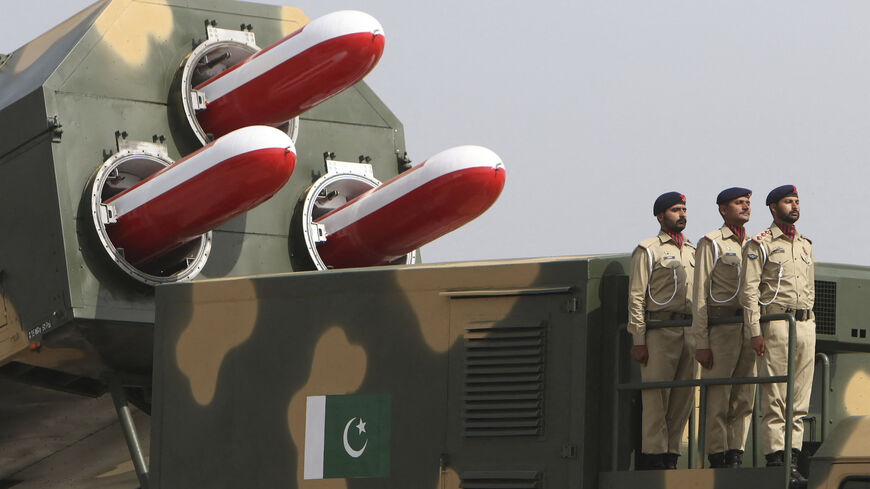Iran’s Araghchi calls for restraint in Pakistan visit as India tensions rise
Iran’s top diplomat will travel to India later this week as regional states call for de-escalation in South Asia.

Iranian Foreign Minister Abbas Araghchi on Monday urged India and Pakistan to de-escalate tensions during a visit to Islamabad, where he also sought to deepen political and economic ties with Pakistan amid growing regional instability.
Araghchi arrived in Islamabad on Sunday to a state welcome and met with his Pakistani counterpart, Mohammad Ishaq Dar, the following day. According to the official Islamic Republic News Agency, the talks focused on strengthening political, economic and cultural cooperation between the two countries.
Foreign Minister of Iran Seyed Abbas Araghchi arrived at MoFA today. He was warmly welcomed by the DPM/FM Senator Mohammad Ishaq Dar @MIshaqDar50. pic.twitter.com/3k9HUFHChD
— Ministry of Foreign Affairs - Pakistan (@ForeignOfficePk) May 5, 2025
Araghchi addressed the ongoing tensions between India and Pakistan upon his arrival in Islamabad. He was quoted by Reuters as saying, “We seek de-escalation and urge all parties to exercise restraint and avoid increasing tensions.”
In its readout of the meeting, the Pakistani Foreign Ministry cited India’s “provocative behavior” since last month’s Kashmir attack and accused New Delhi of attempting to “divert global attention” from the dispute.
On April 22, gunmen attacked tourists in Pahalgam in the Indian-administered part of Kashmir, killing 26 civilians. The attack was originally claimed by a group known as the Resistance Front, reportedly an affiliate of the Pakistan-based Lashkar-e-Taiba militants, but the group denied involvement days later. India and Pakistan have been at odds over Kashmir since the partition of British India in 1947.
The incident has escalated tensions between India and Pakistan. India has accused Pakistan of involvement in the attack. Pakistan has denied responsibility and claimed last week it has “credible intelligence” India would strike first. On Saturday, Pakistan test-fired a ballistic missile.
The Iranian diplomat briefed Pakistani officials on the latest developments regarding US-Iran talks on the Islamic Republic’s nuclear program, according to the Islamic Republic News Agency.
Iran and the United States began talks on the former’s nuclear program last month. The United States has accused Iran of seeking a nuclear weapon, something Tehran denies. Pakistan is one of the nine countries in the world to possess nuclear weapons.
Iranian Foreign Ministry spokesperson Esmaeil Baghaei told reporters on Monday that Iran is waiting to hear from Oman regarding when the next round of talks will be. Oman hosted the first round of discussions last month.
Why it matters: Iran and Pakistan have largely enjoyed friendly relations in recent years, though there was a period of crisis last year. That January, Iran struck what it said were Jaish al-Adl targets inside Pakistan following an attack by the group inside Iran the month prior. Jaish al-Adl is a Sunni Islamist group that fights for the rights of Iran’s Baluchi ethnic minority.
Pakistan struck Iran in response, claiming to target “terrorist hideouts.” The two countries agreed to de-escalate later that month.
The Iranian news outlet Tehran Times reported in April that Iran exported $2.4 billion in non-oil commodities to Pakistan during the last Iranian calendar year, which ended in March 2025.
Iran exported $943 million in goods to Pakistan in 2023, the majority of which consisted of petroleum gas, refined petroleum and petroleum coke. According to the Observatory of Economic Complexity, Pakistan was Iran’s fourth-largest export destination that year after China, Turkey and India. Pakistan, for its part, exported $9.97 million to Iran — mainly construction vehicles — bringing the total bilateral trade to nearly $954 million.
Iran has pursued a policy of strengthening ties with its neighbors in recent years in the face of US and Western sanctions. In March, Araghchi visited Armenia.
Pro-Iranian sentiment in the Pakistani Shiite community has increased since the start of the Gaza war, Sabena Siddiqui wrote for Al-Monitor in October. Iran’s population is mostly Shiite and Shiite Muslims make up around 10% of Pakistan’s population.
Know more: Various Middle Eastern states have called for de-escalation between India and Pakistan since the Pahalgam attack. Last week, the Qatari Foreign Ministry expressed its “full support for all efforts aimed at de-escalating tensions between the two countries” while the Saudi Foreign Ministry called on the two countries to “avoid further escalation.” The Iraqi Foreign Ministry urged "exercising maximum restraint.”
Turkish President Recep Tayyip Erdogan said last Monday that Turkey wants de-escalation between India and Pakistan.
What’s next: Araghchi will visit India on Thursday, the Iranian Embassy there said in a post on X on Monday. The embassy did not provide further details on the visit.
Iran and India maintain friendly relations. The two countries signed a long-awaited deal to develop Iran’s Chabahar Port in May of last year.







